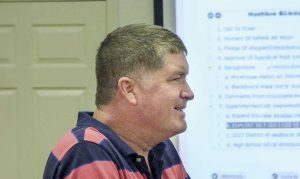[Continued from last week]
By the time I was discharged from active duty in the Marine Corps, I had acquired a wife and a very young son. For the first time, I was responsible for the day to day provision and safety for someone other than myself.
As the family grew, I felt that responsibility more keenly. I understood that I was to be the primary provider for my family. I had watched my father do the same all of my life. Dad sometimes worked two, even three, jobs to make sure that we had everything we needed. He taught by example.
If that weren’t enough, I read where the Apostle Paul wrote to his protegé, Timothy, “But if any provide not for his own, and specially for those of his own house, he hath denied the faith, and is worse than an infidel” (1 Timothy 5:8 KJV). The same verse in the Amplified Version reads this way:
“If anyone fails to provide for his own, and especially for those of his own family, he has denied the faith [by disregarding its precepts] and is worse than an unbeliever [who fulfills his obligation in these matters].”
In either translation, failure to provide for one’s family is a serious matter.
As I considered that verse, I wondered, “How could it be worse than being an infidel, an unbeliever?” After all, the Bible does not paint a rosy future for unbelievers! Certainly that provision includes shelter, food, clothing, and a loving home.
But does it also include protection? If someone broke into my house and threatened bodily harm or worse, to my wife and kids, would I just stand by and watch it happen? I concluded that, as a man, a husband, a father, and as a believer, I could not.
But, what if I did not raise my hand to protect them but, instead, called law enforcement? I decided there were two things wrong with that course of action: (1) It takes time for the police to arrive and they may not arrive in time. (2) I would be calling on people with guns to come into my house and, risking their own lives, do what I was not willing to do so that I could take the “moral high road,” while asking them to do the dirty work. Either path was calling on the use of force to protect my family. I decided that the proper action would be to call the police and to be prepared for whatever might be required.
When we moved into a new house, I came home one day to find that our home had been broken into and had been ransacked and vandalized. All of a sudden, things weren’t theoretical anymore. A stranger, or strangers, had been in my home. What if my wife and kids had been home? Would he/they come back? If he/they did, what would I do? What could I do? What if they were armed? Could I protect my family?
After notifying the police and dealing with filing a report, I called a friend and told him about the situation. Later that day, he and I visited a man that he knew. It was then that I bought my first handgun.
[To be continued next week.]
[David Epps is the pastor of the Cathedral of Christ the King, Sharpsburg, GA between Newnan and Peachtree City (www.ctkcec.org). He is the bishop of the Charismatic Episcopal Diocese of the Mid-South which consists of Georgia and Tennessee (www.midsouthdiocese.org). He may contacted at [email protected].]









Leave a Comment
You must be logged in to post a comment.